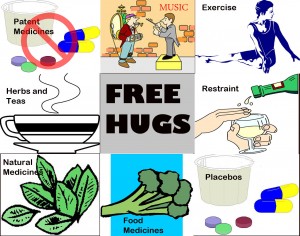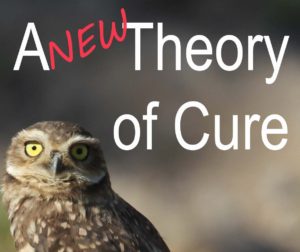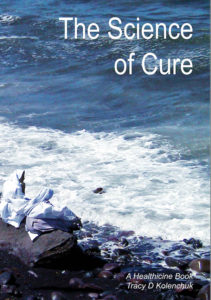The world seems divided on medicines. There are medicines your doctor recommends, and alternative medicines. Doctors typically recommend patent medicines (although they seldom use that name). Some doctors promote alternatives: natural medicines, others prefer Chinese medicines, others ‘traditional’ medicines.
What are Alternative medicines?
The US FDA (Food and Drug Administration) tried to define alternative medicines, in a 2006 ‘draft guidance’ on Complementary and Alternative Medicine Products and their Regulation by the Food and Drug Administration.
They failed. The draft created in 2006, is still a draft 10 years later, unchanged. Why? It’s still a draft, because there is no legitimate way for the FDA to discriminate between conventional and alternative medicines. It’s even more of a problem that some medicines jump back and forth across the gap. Vitamin C, for example, is a conventional medicine when a doctor prescribes it for scurvy, but when she recommends it to prevent colds, it’s an alternative medicine. The USFDA gets around this problem with nonsense like “the product is not intended to ‘diagnose, treat, cure or prevent any disease,’ because only a drug can legally make such a claim.” It’s not approved as a drug, so according the the FDA, you cannot claim that a Vitamin can diagnose, treat, cure or prevent any disease.
According to the US/FDA, there are no alternative medicines, there are only approved drugs. And, according to the US/FDA, only an approved drug can legally claim to diagnose, treat, cure or prevent any disease. It’s clearly bunk. Many non-medicines can cure real illnesses.
FDA political nonsense aside, what are alternative medicines? Medicines are used to treat illnesses. Alternative medicines and alternative treatments, are often seen on television on the radio, in print and on the internet. Some people claim that alternative medicines don’t work. Some even make a living arguing that alternative medicines don’t work. At the same time, many others claim they are the only medicines that work for some diseases.
The truth is simpler, and more complicated. First, we begin with a simple reality.
 Alternative medicines do not exist.
Alternative medicines do not exist.
There is no clear classification called alternative medicine. There is no scientific technique for the FDA to distinguish between conventional and alternative medicines. There are no approval processes for alternative medicines. The FDA Glossary of Terms does not actually have a definition for medicine, much less alternative medicine, only for drug.
According to the US FDA, drugs cannot claim to “prevent, diagnose, treat or cure any disease” – unless they are approved drugs – at which time they are no longer alternative medicines.
No patient cares if you call if a drug, or a medicine, as long as it works. No patient cares if the medicine is conventional or alternative – we care if it works. No honest doctor cares if it is conventional or alternative – if it is the best medicine for their patient.
Now, a word about works. Often, in discussions of conventional vs alternative medicines – we encounter words like works. What does works mean? In general, it means “improves some condition of the patient, but does not cure“. If it cured, we could measure how well it cures, as opposed to how well it “works”. There’s one small problem – most drugs, over 95 percent of drugs, make no claim to cure, and do not cure any disease. “Works” means “does not cure” in most cases.
When we know the cure, there are no alternatives, we know the cure. The cure is to successfully address the present cause. If you are deficient in Vitamin C, Take Vitamin C as your medicine. If your diet is deficient in Vitamin C, taking Vitamin C will not cure, it does not address the cause. It is necessary to change the diet – not just to take Vitamin C as a medicine. If you are toxic with alcohol – reduce or stop your intake of alcohol. Give your body time to clear. If you are alcoholic, simply reducing alcohol one-time will not cure. The cure is an ongoing change. These treatments address the present cause of the illness – no other treatment does. They cure, even though the US FDA declares that only a drug can cure a disease. Taking drugs because you are deficient in Vitamin C, or suffering alcohol toxicity, might make you feel better, but it won’t address the cause, won’t cure.
For any illness where we don’t know the cure, all treatments, medical or otherwise, are are alternatives treatments. How many illnesses do we not know the cure? Most illnesses. Cured is not defined – therefore cannot be found, much less documented, for:
– any disease cured naturally (the common cold, influenza, measles), thus “there is no cure for the common cold“. All treatments for these diseases are alternatives that do not cure.
– any non-infectious disease. Cured is not medically defined for any non-infectious disease, therefore, no cure can be proven. All treatments for non-infectious diseases are non-curative alternatives.
– chronic diseases, like heart disease, multiple sclerosis, and obesity, have no known cures – so every treatment is an alternative.
– cured is not defined for any mental disorder (due to a strange twist of il-logic), therefore, all treatments for mental disorders are non-curative alternatives.
Some of these non-curative treatments officially approved by the US FDA. Most are not.
Alternatives exist when you need to make a choice. Alternatives exist when your doctor, and the medical establishments are NOT able to agree on a diagnosis and recommend a cure. When no cure is known, there are only alternative medicines. Every treatment is an alternative that will not cure.
We might think, or hope that our doctors always recommends the best treatment. The best treatment is almost always a cure. In most cases, your doctor has no idea which is the best treatment. Most doctors cannot access cures – cured being undefined.
“Every illness can be cured” – the Healthicine Creed. We need to find the cure, not the ‘best treatment’, not the best ‘alternative’.
When the curative treatment is not known, all treatments are “alternatives”, whether they are patent medicines, conventional medicines, traditional medicines, herbal medicines, natural medicines, acupuncture physiotherapy, even placebos, HUGS and Kisses, or any other type of medicine. Even wait and see is an important alternative that easily cures the common cold, influenza, measles, and many other supposedly incurable diseases.
Medicines, vs alternative medicines is a myth, a simple misunderstanding. The phrase alternative medicine is not about the medicine, it is about commerce.
When do we know the correct treatment for an illness? When we know the cause, we know how to address it, we know the cure.
Every illness is caused by deficiencies or excesses. Every illness is the result of imbalance, or inability to balance. The word HEALTH actually means wholeness and balance. We can clearly identify a cure for any medical condition when:
- we understand that every illness is the result of deficiency or excess.
- the deficiencies and excesses for a specific case are clearly understood
- the illness has not progressed beyond the basic symptoms of the deficiency or excess. If further damage has resulted from the deficiency or excess, there might be a need for additional treatments.
In these cases, the “correct medicine”, the cure, is clear. Address the cause. If the illness is caused by deficiencies, provide or increase the deficient factors. If the illness is caused by excesses – cut back on, or eliminate the excessive factors.
When do we NOT KNOW the correct treatment? It’s a difficult question. There are some common situations where we don’t know the correct treatment:
- When we don’t know the cause(s) of an illness
- When addressing the cause(s) does not heal the illnes
- When the diagnosis is wrong
- When we choose to treat symptoms, to help the patient ‘live with their disease instead of searching for a cure.
We don’t know the causes of ‘a chronic illnesses’, because we seldom look for cause. We don’t know the cause(s) of specific instances of heart disease, cancer, arthritis, diabetes. In many cases, we can find the cause(s), with due diligence. But our medical systems (and patients) generally ignore due diligence, preferring ‘solutions’. We don’t know the exact cause of some diseases where we ‘think we know’ the cause. The cause of obesity, for example, seems clear, until you look at individual cases. There are many causes, in theory, but we can’t cure the illness. Our theoretical ’cause’ is simply not correct, or at the very least, not sufficient.
Many illnesses, many specific cases of individual illness, are caused by multiple deficiencies and excesses. But our medical systems prefer ‘single’ cures – and as a result, prefer to identify ‘single causes.’ I cannot think of a single illness that is clearly known to be a result of TWO causes., much less an illness with 5 causes. Can you? But it is possible, even common, for many people to be deficient in many known nutrients, and excessive in others.
When we don’t understand the cause, we still need to choose a treatment. We choose one or more ‘alternatives’. For each of the chronic illnesses, we can find many alternatives, hundreds. There are many ‘prescription alternatives’ and many more natural, homeopathic, Chinese, traditional and other alternatives – for each illness. All treatments that do not address a known cause are ‘alternative medicines’.
Choosing a treatment without a clear understanding of the cause, often leads to nonsense. In many cases, it leads to suppression of symptoms of the illness – while the chronic illness progresses. The top selling patent medicines do exactly that, as previously noted in The Medicines Myth. They don’t cure, they treat symptoms, not illness.
Sometimes, we ‘try different treatments’ to see if they work. This is a useful problem solving technique for identifying the cause. The problems with this technique arise from the definition of ‘works’. It’s easy to judge a medicine as ‘working’ when it addresses symptoms, but has no hope of a cure. This leads directly to side effects, and more medicines that don’t cure.
It can get more complicated. Some treatments work by addressing secondary causes. If you drink a lot of coffee one day, the next day you might suffer coffee withdrawal symptoms. There are two alternative treatments. You can drink more coffee, to address the withdrawal symptoms. It works. Or you can wait – or drink water, green tea, or have some ice cream, a massage or acupuncture, and eventually the symptoms will go away. Many treatment alternatives work perfectly well. One (water) is less expensive, in theory – another (coffee) gives more enjoyment, in theory. But coffee is not the cure in this case, it is the cause.
Placebos, are treatments that do not, in theory, address the illness… But whose theory? Someone who ‘thinks’ they understand the illness. When the placebo works – and they can’t explain it – they didn’t understand the illness or the didn’t understand the placebo.
HUGS help healing. Get over it. Placebos are simply things that our doctors claim to understand, but clearly don’t understand.
And so it goes for many so called ‘alternative treatments’. Many people claim they don’t work, that they can’t work, that they will never work. So called experts.
Watch out for experts who say “there is no evidence that…” This scientific sounding phrase is not about the evidence. It’s about the speaker, who is speaking. You can easily test this theory. Search for evidence – it’s often easy to find. Present the evidence to the ‘no evidence exists‘ authority, and see if they change their position. More likely you will see the evidence ‘dismissed‘. There is no evidence that claims of “no evidence” have any medical value.
There is no evidence that “Alternative Medicines” exist separate from ‘real medicines’. All medicines are alternatives – except when they cure.
The myth of Alternative Medicines is actively maintained by conventional doctors and drug producers to sell their products, and also by so called ‘alternative’ doctors and ‘alternative’ medicine producers to sell their products. Neither side is interested truth, they prefer increased sales. The concept of ‘alternative medicines’ was invented, in the 1970s – as a marketing concept. Before that time, there were no ‘alternative medicines’. There were only medicines, and every medicine was an alternative.
The truths, about which medicines are best, are ignored. It’s getting worse, not better. Looking for truth about which medicine is best, in the long list of medicines available for each chronic illness, is like looking for truth in a court of law. Lawyers, and their clients, are not interested in truth – they are interested in winning. People marketing ‘their medicine’ are not looking for truth either.
There are some people out there trying to sell their truth. In all probability, some of them are right, some are wrong. But there is so much noise from the arguments about ‘alternative’ medicines, that the signal is totally lost, and no-one, patient, doctor, or the FDA can find any truth unless they are making an individual decision. Medical theory comes from clinical studies of groups of patient. But every truth is anecdotal. Every cure is an anecdote, not a clinical study. Clinical studies measure symptoms, not cures.
If we can’t find the ‘correct medicine’ in a specific case – is it possible to find the ‘best’ medicine? I believe we may be able to find the ‘best medicine we know so far’, or perhaps ‘the best medicine for me, with my specific lifestyle, illness, etc.’ But until we progress beyond that stage, to truly understand the cause of the illness – we cannot take the leap from the ‘best medicine’ to the ‘correct medicine’. It’s a leap from alternatives, to certainty, from treatments – to cures.
The best medicines cure, but most cures are not medicines. Many, perhaps most illnesses that can be cured, cannot be cured by medicines.
How can we make sense of this? How can we move forward?
We can make progress by asking an important question, that is largely ignored today.
Is this medicine “health based” or illness based. We need to develop a preference for health based medicines. We need to develop a science of health based medicines.
What would we call them? We can’t call them medicines, the US FDA won’t allow anything to be approved as a medicine unless it is a drug. We can’t call them alternative medicines, because the word alternative medicine has no useful definition.
Health based medicines are healthicines. What are healthicines?
Every illness is caused by a deficiency, or an excess. A healthicine is an action that addresses the cause, that addresses the deficiency or the excess. When an illness is complex, the healthicine will be complex as well.
A healthicine is not a ‘thing’, it is an action – or even a deliberate inaction. If you are deficient in Vitamin C, then eating foods containing Vitamin C will address, will cure your deficiency. If you are deficient in sleep, then sleeping will cure your deficiency. If you are deficient in Vitamin C and deficient in sleep, then you need both actions to cure your deficiencies. If you are suffering from an excess of alcohol, or mercury poisoning, or of Vitamin A, the cure is not ‘a thing’, it is the absence of a thing. Sometimes, we can look at it from both angles. If you are working too hard, you are suffering from too much work, and you are deficient in rest. If you cut back on work, you will be able to get more rest. If you rest more, you will be cutting back on work.
But you can’t go to the pharmacy and buy a healthicine. The FDA does not approve alternative medicines, and it does not approve healthicines either, even when they are the only way to cure.
The way to resolve the issues around ‘alternative medicines’ is simple.
We need to resolve to search for cures. When we search for cures, when we find cures, we don’t care about ‘officialdum’. We don’t care about ‘alternative medicines’. We search and find cures that resolve the illness, not the symptoms.
to your health, tracy
Founder: Healthicine.org
This post was originally published in May 2013. This version has been updated.
This post has also been republished by Waking Times
This post has also been translated into Spanish by http://editorial-streicher.blogspot.com/ and the translated version can be seen here: El Mito de las Medicinas Alternativas


